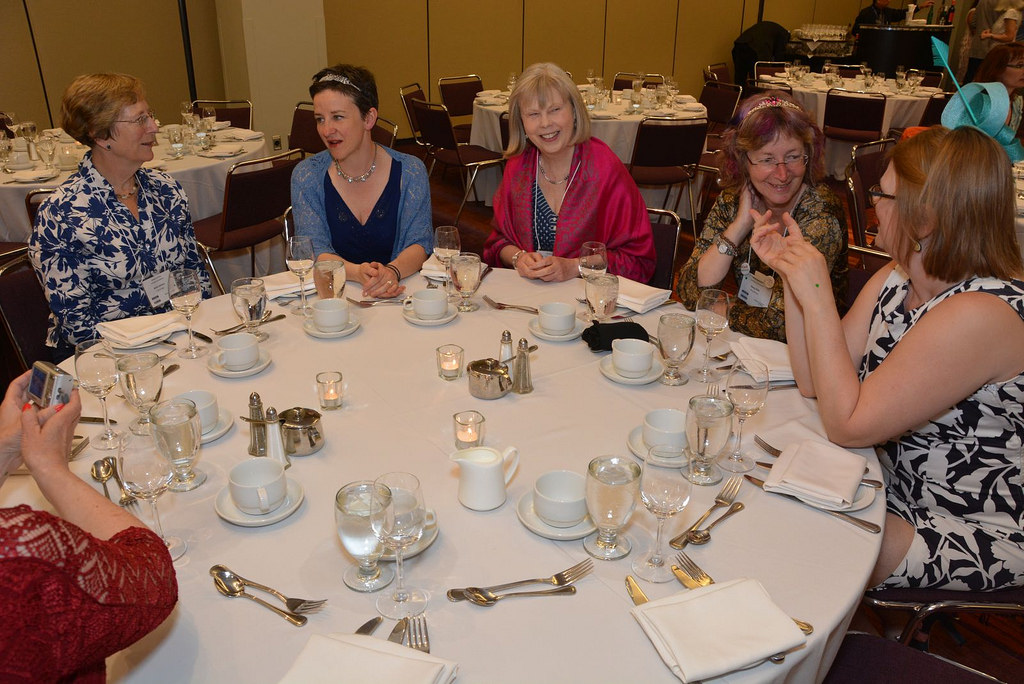
I still vividly remember my first experience of an editorial conference. I came away with a very strong sense of belonging and of being part of a community. I probably learned some useful facts or techniques, but more importantly I was able to have discussions with colleagues and make strong connections with a number of people. Those connections are very important to me, not necessarily in the sense of our passing on work or opportunities to each other (although that does happen), but more because I know people who will understand me and whose opinions I trust.
I was delighted to be invited to represent the U.K.’s Society for Editors and Proofreaders (SfEP) at the Editing Goes Global conference in Toronto this June. I already “knew” a number of people from the Editors’ Association of Earth Facebook group, and the opportunity to be among editors from all around the world was too good to miss. So in June I went on my pre-flight shopping trip: new suitcase and notebook, waterproof currency, tiara …
The evening before the conference began I went out to dinner with 40 or so other people at a local restaurant. Old friends greeted each other with hugs, and people who had met only online before told each other that they thought they’d be taller in real life. Then we began comparing time zones. By the end of the evening I was at an unknown location in downtown Toronto, it was 3 a.m. U.K. time, I had a couple of glasses of wine inside me and I was talking to real-life people who had previously only been Facebook avatars to me. It all added up to a distinctly bizarre experience.
The conference itself was organized in a familiar way. The SfEP’s conference sessions tend to be longer and more hands on, but this requires pre-booking and means that there is slightly less variety on offer. We arrange onsite accommodation for delegates as part of the package, and I thought the EAC’s dispersed accommodation might lead to a more fractured social experience, but I very much appreciated the efforts to organize extramural events to counteract this. The SfEP has a gala dinner also, but our evening’s entertainment is provided by an ad hoc singing group (the Linnets), who murder respectfully adapt a popular song with new editing-related lyrics, and an after-dinner speaker. There are no tiaras, though. Might have to do something about that …
I loved the international aspect to the conference — I find it fascinating how alike editors as a “tribe” appear to be. I found the most useful stream to be “Running an Organization.” These sessions took the format of round-table discussions among some of the representatives from editors’ organizations around the world, including Canada, the U.K., Ireland, Australia, New Zealand, the U.S. and South Africa. They were illuminating, informative and collegial. We found that we had a number of issues and challenges in common when it came to, say, providing training and certification or setting up our mentoring schemes. Because people were so willing to share their experiences, both good and bad, we were all able to learn a bit more about what might or might not work in our own organizations.
One day, perhaps, we might be working towards a set of international standards or some international online-learning modules that can be adapted to the different national contexts. In the more immediate future, I hope we can look at reciprocal arrangements between the organizations for things like online learning and conference attendance.
The Internet has brought about enormous changes in the way we work. I, for one, do not miss trekking down to the library with my list of facts for checking when I can just pop a question into my browser and have the answer I need in seconds. Increasingly, editors work for clients in other countries. I work for academics around Europe and over the other side of the Atlantic, while I know from conversations within the SfEP membership that many U.K. editors are working for Indian project management companies or self-publishing authors from all around the world.
And it isn’t just the Internet that has changed what I do and how I do it: more and more of my clients now have a digital workstream into which I must fit, and instead of using my red pen and my BSI markup symbols, I have to be able to adapt to a range of onscreen procedures to get to the same result.
Most importantly, the Internet has reduced my sense of isolation: I might be alone in my home office, but I’m connected to people I consider friends as well as colleagues online, and I can access and offer support and advice at any time.
Events like Editing Goes Global are of immeasurable value for the same reason, offering inspiration, support and the opportunity to make lasting connections for both the seasoned professional and the newly minted editor.
The Editors’ Weekly is the official blog of Editors Canada. Contact us.
Discover more from The Editors' Weekly
Subscribe to get the latest posts sent to your email.
